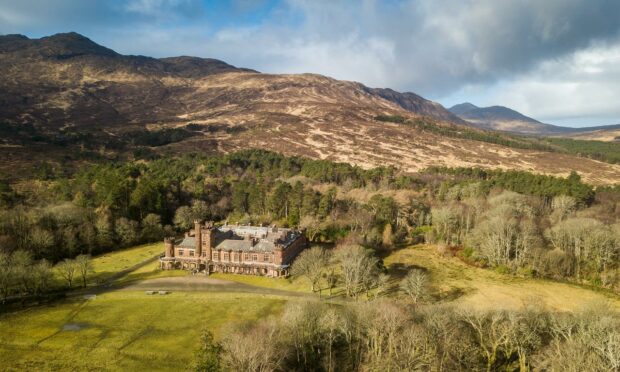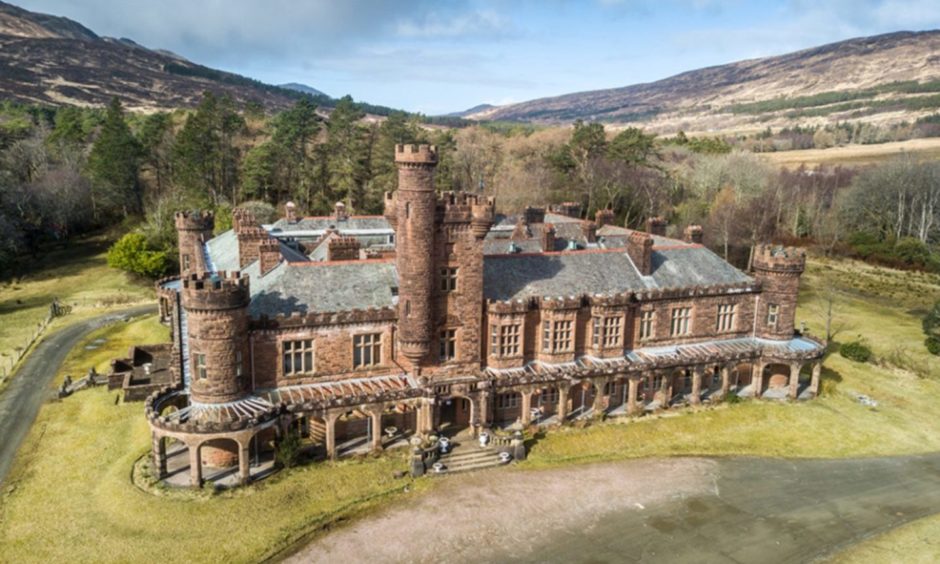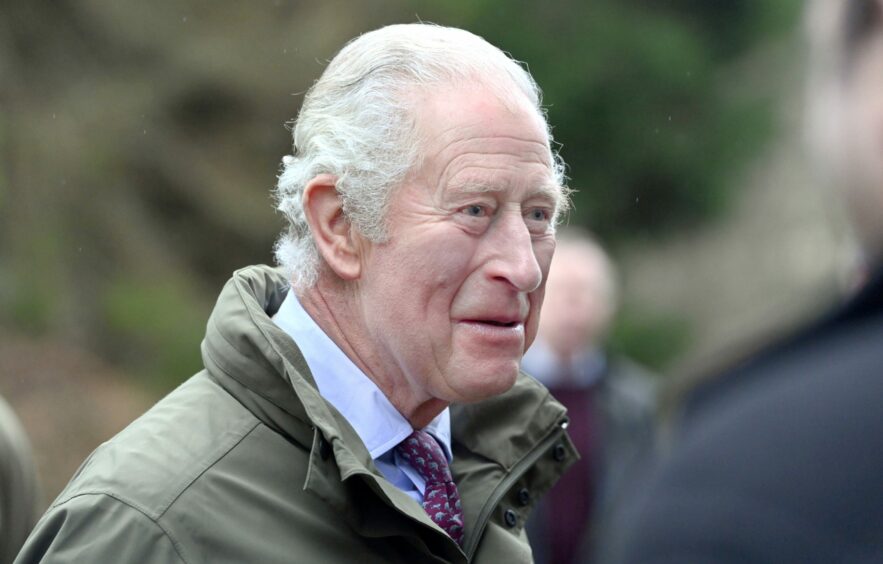A remote Hebridean castle that was once said to be a royal pleasure palace is to be sold on the open market, it has been revealed.
Kinloch Castle on the Isle of Rum is languishing in a deteriorating state.
Its current owner NatureScot had been keen to dispose of the castle and was seeking a “beneficial owner” for some time.
But when the deadline for interested parties ended in September there were 11 serious proposals to be the next king of the castle.
However it has now emerged none has progressed to a sale.
Savills put castle on open market
There were initially more than 90 expressions of interest which were whittled down to the firmed-up proposals. It is understood established hotel chains are among the suitors.
But now the Kinloch Castle Friends’ Association (KCFA) has revealed that top estate agent Savills have been appointed after the association said “no suitable beneficial owners were found”.
“A subsequent meeting of the group of interested parties… agreed that the castle should go on the open market with the sale being handled by Savills. This is now ongoing,” said the association in an update.
“The KCFA team have agreed that our business plan will be made available to any parties interested in purchase of the castle as although we would not expect them to follow our suggestions, they may find both these and our research helpful. We would also wish if acceptable to work closely with any buyer to offer our knowledge and background information.”
It previously emerged in 2018 that some the castle’s incredible art treasures had “disappeared”, including an elaborately decorated mirror, a Japanese Buddha figurine and historic tribal weapons.
The castle, commissioned by Lancashire industrialist Sir George Bullough in 1897, once hosted some of the most lavish parties and was a show case for items collected from his travels around the world.
Powerful names of the time headed to Rum to be entertained by the Bulloughs, including King Edward VII.
In 1957, Sir George’s widow Lady Monica sold the stately home to the Government, which entrusted it to the Nature Conservancy Council – later Scottish Natural Heritage, now renamed NatureScot. The castle functioned as a hotel until 1996, and then as a hostel until it was closed to overnight visitors in 2013.
‘The building is deteriorating and rapidly’
Time is running out to save the castle, say campaigners.
NatureScot had put together a marketing prospectus that was sent to selected hotel chains and other potential owners.
But KCFA say the prospectus painted literally far too rosy a picture of the state of the castle and buyers should beware.
The sale would end more than 60 years of public ownership.
“If no suitable bidder is found, the castle will then be put onto the open market without any constrictions other than those of it being a listed building,” previously warned Catherine Duckworth, secretary of KCFA.
“The building is deteriorating and rapidly, partly because it is empty. I don’t know what the purchase price will be but the last time it was valued it was at £1 because of the repairs needed. It will take at least £7m to enable a business to be run.
“We want it restored and given a sustainable and viable future and if that is as a hotel that’s fine.”
Kinloch Castle caught the Prince’s eye
Kinloch was highlighted on the BBC2 Restoration series in 2003 but despite attracting 143,000 votes, it failed to win the £3m prize towards the cost of restoring it.
However it caught Prince Charles’s interest and following the programme he called a meeting at Birkhall, his Deeside retreat, of interested parties, to investigate a possible £12 million restoration package. Charles visited the castle in 2006.
On completion in 1901 the castle had a staff of 100 and a menagerie of alligators, hummingbirds and turtles. Guests were greeted by a nude portrait of Monica, the owner’s wife, and there were rumours of indiscreet behaviour in the ballroom, where the orchestra sat behind curtains to ensure guests’ privacy. The parties came to an abrupt end in 1939, when Bullough died of a heart attack.
TV personality Griff Rhys Jones has described Kinloch as a victim of bureaucratic neglect.
The poet Sir John Betjeman once said that Kinloch Castle “remains an undisturbed example of pre-1914 opulence”.


